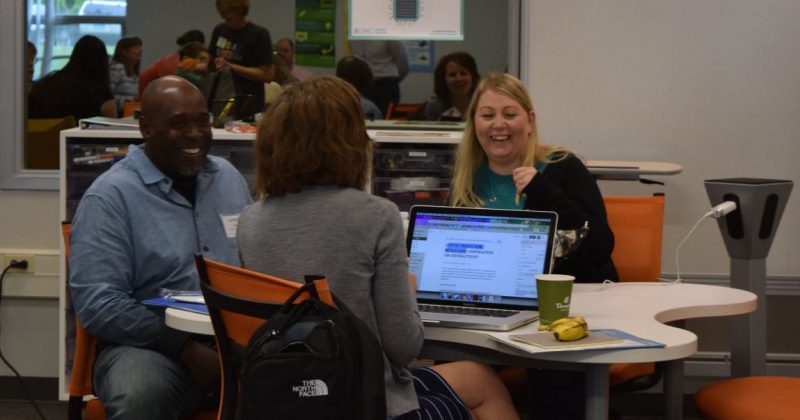Julie Kinnaird | May 7, 2019

School library media coordinators wear many hats in the roles they serve at their school, whether it is an elementary, middle or high school or even if they are working in their district’s central office. Librarians are the information science experts who develop, manage and curate collections and resources. They budget, market, write grants, encourage reading and integrate technology. They are the true teacher of skills and strategies, not only for students but for colleagues too. They peak students’ curiosities in the books on their shelves and create lifelong learners in the school library. They are critical to the success of any school.
According to Educational Leadership author Doug Johnson in his recent article, The School Librarian: Your Ultimate Digital Resource, digital school librarians are faced with six important roles to support the everchanging technology available to use in their schools. These roles include curating resources to support individualized instruction; sharing expertise in locating and evaluating resources; helping students (and teachers) produce digital content; being the “digital copyright guru”; teaching digital citizenship and online safety; and planning and managing school maker-spaces.
We learned about many of these roles last month when school library media coordinators from across North Carolina came together to learn how to add global dimensions and equitable practices and policies to their library or media center. World View’s Creating a Global Media Center Workshop included sessions on reflecting on school library collections and the importance of having diverse library collections. Presenters also spoke on personalized learning, creating equitable libraries and strategies for integrating technology to learn about, from and with the world. New this year, school library media coordinators explored augmented and virtual reality using many of the Carolina Center for Educational Excellence’s new technologies. We were able to travel virtually to Anne Frank’s house and to Chernobyl to learn a bit about important events in history.
Thank you to all of North Carolina’s school library media coordinators for creating welcoming and equitable spaces where students can connect to the world through books and technology.
